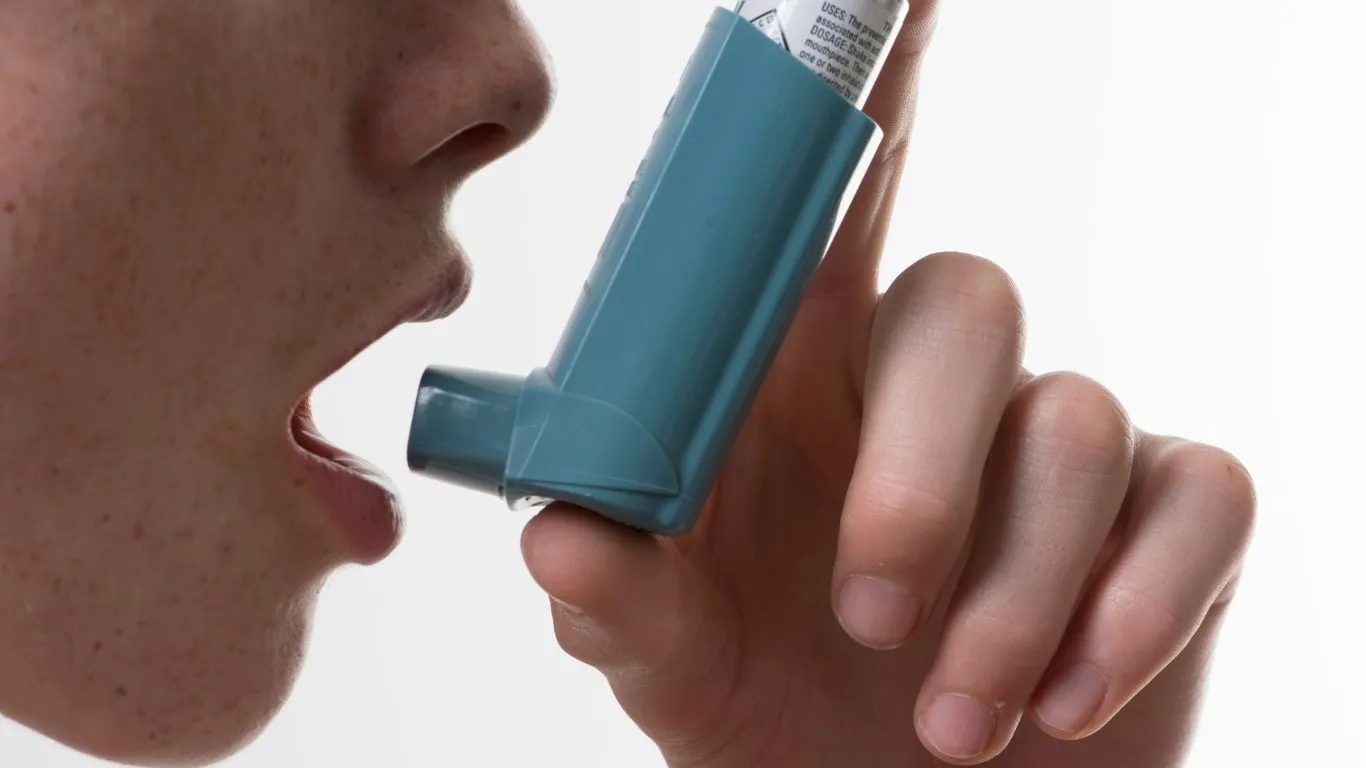Can Asthma Cause Frequent Yawning and Fatigue? What You Should Know
If you’ve ever found yourself yawning repeatedly throughout the day and dragging your feet with exhaustion, you might’ve brushed it off as just being tired. But as a pulmonary nurse practitioner, I’ve seen something else lurking behind these everyday symptoms more often than you’d think. Can asthma cause frequent yawning and fatigue? Surprisingly, yes. And it’s one of those sneaky ways asthma can affect people without the classic wheezing or coughing. Let’s unpack this, especially if you’ve been feeling unusually tired and can’t figure out why.
What Does Fatigue Have to Do with Asthma Anyway?

We usually think of asthma as a condition that causes shortness of breath, chest tightness, and those midnight coughing spells that leave people wide-eyed at 3 a.m. But fatigue and yawning? They’re not typically at the top of the asthma symptom list — and that’s exactly why they get overlooked.
From what I’ve seen in practice, some of my patients come in complaining about being exhausted for weeks. They’re not wheezing, and their lungs sound fine with the stethoscope. But their oxygen levels dip just slightly during sleep or mild activity — not enough to set off alarms, but enough to leave them drained. That subtle drop in oxygen? It’s a big clue.
Here’s How Asthma Can Quietly Drain Your Energy
- Low oxygen saturation: Even mild asthma can cause intermittent drops in oxygen levels, especially at night.
- Poor sleep quality: Nighttime asthma (also called nocturnal asthma) can interrupt deep sleep cycles without waking you fully.
- Overworked respiratory muscles: Your body is working harder to breathe, even if you don’t feel it — and that takes energy.
Imagine your lungs are like a car engine. If there’s even a small blockage or inefficiency, the engine has to work overtime to keep things running. That’s your body on asthma — especially the kind that flies under the radar.
Is Frequent Yawning a Sign of Asthma?

Yes, it can be. Can asthma cause frequent yawning and fatigue? Absolutely — and here’s the interesting bit. Yawning is your body’s natural response to low oxygen levels or an attempt to regulate carbon dioxide. So if your airways are even slightly inflamed or constricted, your body may be trying to sneak in extra oxygen through yawns. It’s subtle, but it happens more than you think.
I had one patient — let’s call her Sarah — who came in saying she couldn’t stop yawning during her morning meetings. No allergies, no sleep apnea, no caffeine overload. After some simple spirometry and a quick peak flow test, we found mild, persistent asthma. Once we started her on a low-dose inhaled corticosteroid, the yawning episodes dropped dramatically.
Other Sneaky Symptoms That Might Be Linked
- Dry cough, especially at night or early morning
- Unexplained fatigue during physical activity
- Breathlessness when climbing stairs or walking fast
- Heavy chest feeling even when you’re not sick
Many of these signs get misattributed to stress, bad sleep, or just getting older. But in the clinic, when I hear someone say “I just don’t have the energy I used to,” I always dig deeper into their breathing patterns — especially if they mention yawning more than usual.
Asthma and Sleep: The Missing Piece of the Puzzle

If you’re waking up tired even after a full 8 hours, asthma could be messing with your sleep architecture. That’s a fancy way of saying: your body isn’t getting into the deep, restorative sleep stages because it’s too busy managing airflow. Nocturnal asthma is a real thing — and it’s more common than people think.
Sometimes patients don’t even realize they’re waking up slightly multiple times a night. They just feel foggy and drained in the morning. Once we improve their asthma management — better control, proper inhaler technique, and sometimes adjusting meds to nighttime use — their sleep quality improves, and the daytime fatigue starts to fade.
How to Know If Your Fatigue and Yawning Are Really Asthma

This is the tricky part — asthma doesn’t always look like asthma. Not every patient walks in wheezing or gasping for breath. Some of the people I see are just… tired. That’s it. No dramatic symptoms, just chronic low energy and non-stop yawning. And honestly, if I weren’t so used to seeing asthma’s sneakier side, I’d probably overlook it too.
If you’ve been asking yourself, can asthma cause frequent yawning and fatigue, and that question keeps circling in your mind with no other obvious explanation — it’s time to dig deeper. Diagnostic tools are your best friend here, and as someone who’s walked dozens of patients through this, here’s what often helps:
- Spirometry: Measures airflow and can uncover even mild airway obstruction you might not feel.
- Peak Flow Meter: Handy tool you can use at home to track your breathing strength over time.
- FeNO Testing: Measures airway inflammation — super useful in detecting allergic or eosinophilic asthma.
- Overnight Pulse Oximetry: Especially if fatigue hits hardest in the morning. We want to know what your oxygen is doing while you sleep.
I usually start with spirometry in the clinic — it’s quick, non-invasive, and gives a solid first look. If someone’s numbers are borderline, we’ll often do a trial of asthma medication to see if symptoms improve. And when they do? That’s when the lightbulb moment hits for both of us.
The Everyday Impact: More Than Just Being Tired

Let’s be real — being tired all the time sucks. It messes with your mood, productivity, relationships, even your self-confidence. I’ve seen patients break down in my office because they feel like they’re “just lazy” or “not themselves anymore.” And all along, their body was quietly fighting for air without them even knowing it.
One guy I worked with — we’ll call him James — was a warehouse supervisor. Active, in his late 30s, no history of asthma. But for months, he said he’d come home completely wiped out and couldn’t keep his eyes open during dinner. He thought it was burnout. But guess what? After doing some testing, we realized he had adult-onset asthma, likely triggered by constant dust exposure at work. A few changes to his treatment plan (and work environment), and he felt like a brand new person. Literally said, “I didn’t know how bad I felt until I didn’t feel it anymore.”
Red Flags That Might Be Hiding in Plain Sight
- Yawning more during stressful or physical situations
- Energy crashes even after light activity
- That “can’t catch my breath” feeling during the day
- Mental fog or poor focus without a clear cause
As a healthcare provider, I always tell people — your symptoms are valid. You don’t need to be doubled over in an asthma attack to take your breathing seriously. And if your energy levels have tanked and you’re yawning like it’s your full-time job, it’s worth checking if asthma’s playing a part.
Managing Asthma-Linked Fatigue: What Actually Helps

Alright, so let’s say your yawning and fatigue are linked to asthma — now what? From my experience, here are a few real-life strategies that make a difference:
1. Review Your Asthma Action Plan
Not all plans are created equal. If you’re still fatigued or constantly tired despite “controlled” asthma, it may be time to tweak the meds or dosage. I often find that small changes (like adjusting the time of day you take your inhaler) can have big ripple effects.
2. Focus on Inhaler Technique
You’d be surprised how many people use their inhaler incorrectly — even longtime users. I always walk patients through it again just to be sure. If your medication isn’t reaching your lungs properly, your symptoms won’t improve — period.
3. Prioritize Sleep Hygiene
If nocturnal asthma is robbing you of rest, a few adjustments can help:
- Elevate your head slightly when sleeping
- Use a HEPA filter or keep pets out of the bedroom
- Consider a nighttime controller med if mornings are rough
4. Track Your Symptoms
I’m a huge fan of asthma diaries. Jot down how you feel, any yawning spikes, energy levels, even mood changes. It’s easier to connect the dots when it’s written down — and way easier for us clinicians to spot patterns when you bring it in.
5. Don’t Ignore the Mental Side
Let’s not forget — fatigue can mess with your mental health. And asthma, especially when poorly managed, can create low-level anxiety that wears you down even more. Therapy, breathwork, and simple stress reduction techniques can be game-changers.
Lifestyle Changes That Can Help Reduce Fatigue and Frequent Yawning

Okay, so you’re managing your asthma with the right meds, your inhaler technique is on point, and you’re tracking symptoms like a pro. What else can you do to cut down on fatigue and those frequent yawns? From my years working hands-on with patients, I’ve seen that a few simple lifestyle tweaks can really tip the scales in your favor.
1. Get Moving, But Pace Yourself
Exercise is often the last thing you want to do when you’re tired, but it’s actually a powerful energy booster. That said, asthma can make workouts feel intimidating. My advice? Start slow and focus on activities that don’t trigger your symptoms — swimming and walking are usually great picks. Consistency beats intensity here. Over time, regular movement helps your lungs function better and can reduce that overall feeling of exhaustion.
2. Watch Your Triggers Closely
This might sound obvious, but trigger management is key. Dust, pollen, smoke, cold air — these can all quietly worsen your asthma without a full-blown attack. And when your lungs are constantly on edge, your body wastes energy just trying to keep you breathing smoothly. Keeping a clean home, using air purifiers, and avoiding strong scents can cut down on these hidden irritants.
3. Mind Your Nutrition and Hydration
Fueling your body right is underrated when it comes to managing asthma-related fatigue. Eating a balanced diet rich in antioxidants, omega-3 fatty acids, and vitamins (especially vitamin D) can help reduce inflammation in your airways. And staying hydrated thins mucus, making breathing easier. From my experience, patients who focus on nutrition often notice a real lift in their energy levels.
4. Stress Management Is Not Optional
Stress and anxiety can tighten your chest muscles and worsen asthma symptoms — creating a vicious cycle of tiredness and yawning. Practices like meditation, yoga, or even simple deep breathing exercises can calm your nervous system. I encourage my patients to find small moments of calm daily. Trust me, your lungs and mind will thank you.
When to See a Specialist: Don’t Wait Until You’re Drained

If you’ve tried all the basics and your yawning or fatigue is still out of control, it’s time to reach out for expert help. Pulmonologists and allergy specialists can dig deeper with advanced testing, and sometimes, fatigue can be a sign of overlapping conditions — like sleep apnea or vocal cord dysfunction — that need specific care.
Remember, persistent fatigue isn’t just “part of asthma.” It’s a signal your body sends when something’s off balance. As a pulmonary nurse practitioner, I’ve learned that listening carefully to these signals and addressing them early makes a huge difference in quality of life.
Tips for Advocating for Yourself at the Doctor’s Office
- Keep a detailed symptom diary: Include when yawning and fatigue happen, what you were doing, and any other symptoms.
- Ask for specific asthma tests: Like spirometry or FeNO, even if you feel “fine” most of the time.
- Don’t downplay your symptoms: Fatigue can be invisible but impactful. Make sure your provider understands how it affects your daily life.
- Discuss lifestyle factors: Sleep quality, stress, and environment all matter for managing asthma well.
I always encourage patients to come prepared and speak up — it’s your health, after all!
Wrapping Up: Understanding the Connection
So, can asthma cause frequent yawning and fatigue? Absolutely. It’s not always the obvious wheezing or coughing that tells the story. Sometimes, it’s the little signs — those extra yawns during meetings, that persistent tiredness — that deserve attention.
With the right diagnosis, treatment, and lifestyle habits, you can reclaim your energy and breathe easier. And if you’re ever in doubt, don’t hesitate to reach out to a healthcare professional who really listens and understands the nuances of asthma. Your body is speaking — it’s time to listen closely.
References
Disclaimer
This article is for informational purposes only and does not substitute professional medical advice, diagnosis, or treatment. Always seek the guidance of your healthcare provider with any questions you may have regarding a medical condition.

Bianca Nala is a compassionate Nurse Practitioner with a strong background in primary and respiratory care. As a health writer for Healthusias.com, she combines her clinical expertise with a talent for clear, relatable storytelling to help readers better understand their health. Bianca focuses on topics like asthma, COPD, chronic cough, and overall lung health, aiming to simplify complex medical topics without losing accuracy. Whether she’s treating patients or writing articles, Bianca is driven by a single goal: making quality healthcare knowledge accessible to everyone.






